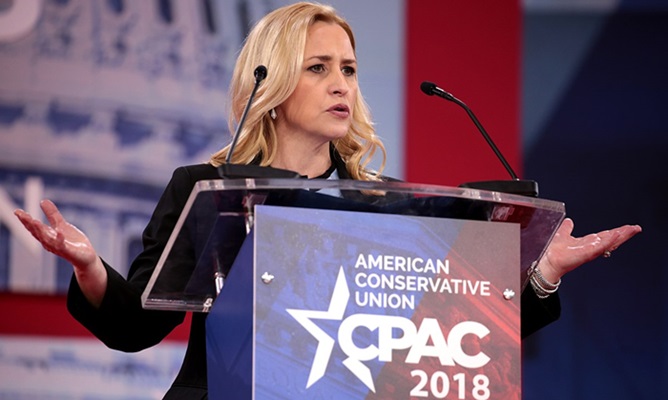For the second time this year, Arkansas Attorney General Leslie Rutledge (pictured) has rejected a proposed amendment to the state constitution that would allow casinos in Arkansas.
Dated April 10, the attorney general’s opinion (pdf) says that the ballot title is ambiguous and misleading and the name of the proposal, too lengthy.
If that has a familiar ring, it’s because in January this year, AG Rutledge rejected a similar measure due to ambiguities in the language of another proposed constitutional amendment; The Arkansas Casino Gaming and Highway Funding Amendment of 2018 – which was the effort of a citizens’ group called Driving Arkansas Forward and was reportedly submitted by the law firm of Steel, Wright, Gray and Hutchinson, whose members include former Rep. Nate Steel and Sen. Jeremy Hutchinson, according to the Arkansas Times.
That measure would’ve seen a casino built in Crittenden County, Jefferson County, and either Mississippi, Miller, Union, Pope or White counties with the lion’s share of tax revenue earmarked for highway funding.
At that time, Rutledge cited the definitions of “casino” and “casino gaming,” a reference to the Arkansas Economic Development Commission and whether the measure was a true “highway funding” proposal, as reasons for the rejection.
Driving Arkansas Forward has had two separate ballot titles rejected by AG Rutledge, one in January and the other last month.
While the January proposal would’ve reportedly dedicated 65 percent of tax revenues to state highways, the most recent effort from Arkansas Wins in 2018 would’ve seen 52.5 percent of taxes earmarked for the state’s highway needs and four casinos built at specific locations in Boone, Benton, Pulaski and Miller counties.
According to the filing with the Arkansas Ethics Commission, the most recent proposal advanced by the Arkansas Wins in 2018 Inc. committee is reportedly led by retired businessman Mark Diggs of Little Rock who is its president and Bob Womack of Branson, its secretary-treasurer, as reported by Arkansas Online.
While stand-alone casinos are not permitted by existing Arkansas law, it does allow electronic games of skill such as those at Southland Park Gaming and Racing in West Memphis and Oaklawn Racing and Gaming in Hot Springs.
Under Arkansas Law, the popular name and ballot title of a proposed constitutional amendment must be either certified or rejected by the attorney general within 10 business days. It must be approved before supporters of the measure can begin to collect the required 84,859 valid signatures by July 6 in order for the proposal to qualify for the general election ballot on November 6.
According to Arkansas Online, the Driving Arkansas Forward committee has submitted another proposal for AG Rutledge’s consideration, said counsel for the committee, Nate Steel. Per the committee’s filing, its treasurer is Cal Turner of Little Rock, while lobbyist Don Tilton has reportedly said that he is the committee’s temporary chairman. According to the news agency, Tilton’s clients include the Quapaw Tribe, which is purportedly interested in applying for a casino license.
Last month, the Pine Bluff Commercial reported that in late January, officials from Jefferson County and Pine Bluff along with members of the business community announced that Jefferson County is one of the four planned sites to build a casino resort and that those plans were laid out by the Chief of the Quapaw Tribe, John Berry, during a meeting at the Economic Development Alliance for Jefferson County.
Headquartered in Quapaw in Ottawa County, Oklahoma, the Quapaw Tribe is responsible for two casinos, the Quapaw Casino and the Downstream Casino Resort, both in their tribal jurisdictional area in Quapaw.
In 2014, the Quapaw Tribe purchased two parcels of ancestral land totaling 160 acres near the Little Rock Port Authority’s industrial park for $1.37 million. The land is located approximately 282 miles from the tribe’s headquarters in Quapaw. Later that year, an application was submitted to the Bureau of Affairs (BIA) requesting that the 160 acres be given Federal Trust status. Locally, concerns were raised regarding the possibility that the tribe would use the land for a casino. The Quapaw Tribe at the time claimed that it had no plans to open a casino on the land that lies within its former reservation there.
The BIA has been reviewing the Quapaw Tribe’s land-into-trust application since 2015.



